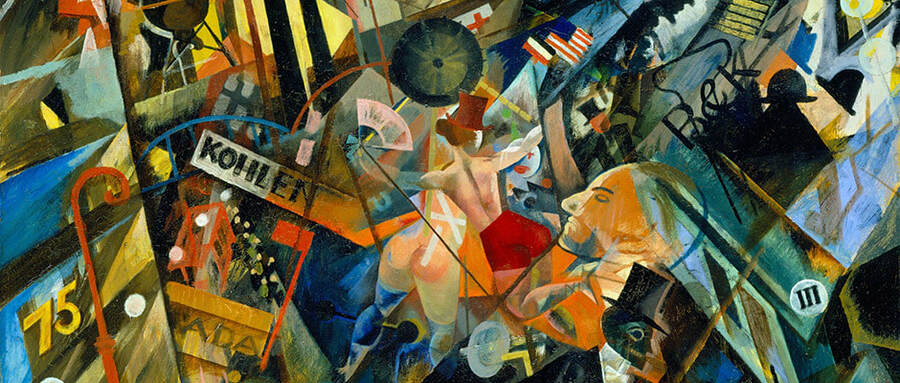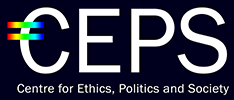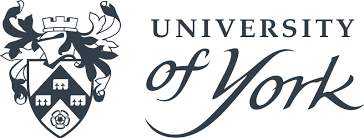George Grosz, Tempo der Strasse (1918). Private Collection, Courtesy Richard Nagy Ltd., London
Democracy, Corporations, and the Limits of the Market
June 1, 2021
University of Minho, Braga - Portugal
June 1, 2021
University of Minho, Braga - Portugal
Where: Auditorium of the Institute of Letters and Human Sciences (ILCH), University of Minho, Braga
Organization: This event is co-organized by the Centre for Ethics, Politics and Society of the University of Minho, and the Philosophy Department of the University of York, with the sponsorhip of the Luso-American Foundation
Convenors: Daniele Santoro, António Baptista, Alan Thomas
Lectures by:
Isabelle Ferreras - Université Catholique de Louvain (by videoconference)
Liza Herzog - Technische Universität München
Abraham Singer - Loyola University, Chicago
Alan Thomas - University of York
Description
Since the end of the Cold War, capitalism has triumphed globally, and market economies have ruled unchallenged. Criticisms that capitalism exacerbates inequalities have been brushed aside in the name of the freedom of enterprise, while limits to its inherent logic have been suppressed by systematic policies of deregulation and privatization. Despite recurrent periods of recession, economic liberalism became hegemonic in the 1980s through the 1990s, conquering and converting much of the European social-democracy to its assumptions and policies. Then the 2007-2008 financial crisis hit. The long-lasting consequences of soaring inequalities and public and private debt became manifest, as well as the inability of neoliberal policies to provide essential public goods to large portions of national communities affected by the crisis. Many have come since then to question capitalism and the unfettered rule of the markets. Political philosophers have insisted that, even within the constraints of a capitalist market economy, a more just society is not only economically and politically feasible but morally mandatory and have been keen to explore new avenues of alternative public policies. In this context, some authors have recently explored the idea of the private company as a political entity in its own right, which ought to be subject to legal and moral rules and limits analogous to those which exist for other kinds of political communities, such as nation-states. The private company doesn't have to be, nor should it be, a morality-free or justice-free space in liberal democratic societies.
While in previous editions of the Summer School we have discussed alternatives to the existing capitalist regime such as property-owning democracy (2014) and democratic socialism (2018), in this edition we seek to discuss more largely the legitimacy of free market capitalism and the political role and structure of the private company.
Among the questions we are particularly interested in debating are the following:
What is the philosophical foundation of the legal personhood of the company?
Should a liberal-democratic state impose democratic rules and rights on the company?
Are democratic constraints on the operations of the company an encroachment on fundamental private property rights of its owners?
Can rules and rights simultaneously be politically and economically feasible?
Are free market capitalism and social justice still compatible? If so, to what extent?
What philosophical grounds justify state regulation and interference in the market?
What limits should be devised to the market for the sake of the public interest?
What is the nature of the public interest?
Format
The course features four invited speakers, who will deliver one to two lectures each. We invite the participation of Ph.D. students, postdoctoral scholars and established researchers to join us in the discussion and present their ongoing work on these topics or any related theme.
Organization: This event is co-organized by the Centre for Ethics, Politics and Society of the University of Minho, and the Philosophy Department of the University of York, with the sponsorhip of the Luso-American Foundation
Convenors: Daniele Santoro, António Baptista, Alan Thomas
Lectures by:
Isabelle Ferreras - Université Catholique de Louvain (by videoconference)
Liza Herzog - Technische Universität München
Abraham Singer - Loyola University, Chicago
Alan Thomas - University of York
Description
Since the end of the Cold War, capitalism has triumphed globally, and market economies have ruled unchallenged. Criticisms that capitalism exacerbates inequalities have been brushed aside in the name of the freedom of enterprise, while limits to its inherent logic have been suppressed by systematic policies of deregulation and privatization. Despite recurrent periods of recession, economic liberalism became hegemonic in the 1980s through the 1990s, conquering and converting much of the European social-democracy to its assumptions and policies. Then the 2007-2008 financial crisis hit. The long-lasting consequences of soaring inequalities and public and private debt became manifest, as well as the inability of neoliberal policies to provide essential public goods to large portions of national communities affected by the crisis. Many have come since then to question capitalism and the unfettered rule of the markets. Political philosophers have insisted that, even within the constraints of a capitalist market economy, a more just society is not only economically and politically feasible but morally mandatory and have been keen to explore new avenues of alternative public policies. In this context, some authors have recently explored the idea of the private company as a political entity in its own right, which ought to be subject to legal and moral rules and limits analogous to those which exist for other kinds of political communities, such as nation-states. The private company doesn't have to be, nor should it be, a morality-free or justice-free space in liberal democratic societies.
While in previous editions of the Summer School we have discussed alternatives to the existing capitalist regime such as property-owning democracy (2014) and democratic socialism (2018), in this edition we seek to discuss more largely the legitimacy of free market capitalism and the political role and structure of the private company.
Among the questions we are particularly interested in debating are the following:
What is the philosophical foundation of the legal personhood of the company?
Should a liberal-democratic state impose democratic rules and rights on the company?
Are democratic constraints on the operations of the company an encroachment on fundamental private property rights of its owners?
Can rules and rights simultaneously be politically and economically feasible?
Are free market capitalism and social justice still compatible? If so, to what extent?
What philosophical grounds justify state regulation and interference in the market?
What limits should be devised to the market for the sake of the public interest?
What is the nature of the public interest?
Format
The course features four invited speakers, who will deliver one to two lectures each. We invite the participation of Ph.D. students, postdoctoral scholars and established researchers to join us in the discussion and present their ongoing work on these topics or any related theme.
Abstract Submission
The call for papers is now closed.
The call for papers is now closed.
Participation
The call for participation is now closed.
The call for participation is now closed.
The participation fee is 100 Euros. Detailed information about registration and payment procedures can be found here. The deadline for registration is June 30, 2019.
Information about the program, accommodation and traveling is available on this site. There will be a conference dinner. Click here for details.
For other queries, contact: [email protected]
Information about the program, accommodation and traveling is available on this site. There will be a conference dinner. Click here for details.
For other queries, contact: [email protected]




